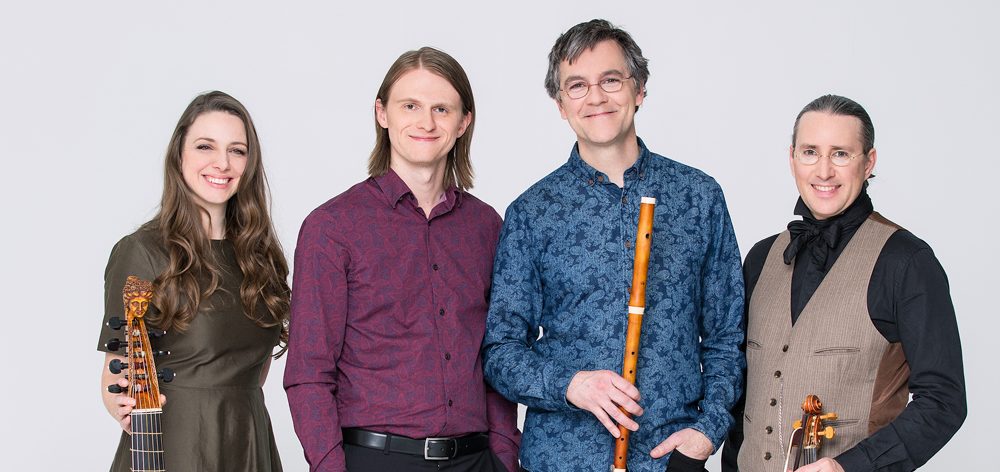Christ Church Cathedral | Map
Francis Colpron, music director, recorder; Les Boréades de Montréal; Olivier Brault, violin; Mélisande Corriveau, violoncello & pardessus de viole; Mark Edwards, harpsichord & organ
A concert of virtuosic chamber music by J.S. Bach arranged for violin, various flutes, recorder, gamba and harpsichord. The concert will also include the Ciaccona from the partita no. 2 in D minor for solo violin played by one of North America’s greatest Baroque violinists, Olivier Brault.
To view/download this programme, please click here.
This concert is generously supported by Agnes Hohn.
Programme
Johann Sebastian Bach (1685-1750)
Trio Sonata No. 1 in F major BWV 525
(originally in B Flat major)
for recorder, violin and basso continuo
[Allegro moderato]
Adagio
Allegro
Trio Sonata No. 4 in A minor BWV 528
(originally in E minor)
for recorder, violin and basso continuo
Adagio/Vivace
Andante
Poco allegro
Trio Sonata No. 3 in D minor BWV 527
for pardessus de viole and organ obligato
Andante
Adagio e dolce
Vivace
Ciaccona from Partita No. 2 in D minor BWV 1004
for solo violin
Trio Sonata No. 5 in F major BWV 529
(originally in C major)
for recorder, violin and basso continuo
Allegro
Adagio
Allegro
Programme Notes
Johann-Sebastian Bach (1685-1750)
Most organists agree that the Cantor of Leipzig’s Organ Sonatas, written in trio sonata form, are among the most formidable repertoire ever composed for the organ. Musically speaking, they are a synthesis between the strict and demanding contrapuntal style (canon, fugue, ricercare) so dear to Bach, and the Galant style. Indeed, the Organ Sonatas are imposed pieces at many of the major organ competitions. They are an unavoidable rite of passage and the ultimate benchmark of virtuosity.
Countless transcriptions and adaptations have been made of Bach’s works, and he himself transcribed Italian concertos for the keyboard. On one of his very last works, The Musial Offering, he does not dictate any specific instrumentation (Ricercare a 6) In addition, the work includes a Trio Sonata written for flute, violin and basso continuo based on the well-known theme given to Bach by King Frederick II of Prussia. Glenn Gould performed a number of selections of this monumental work on the organ. And so, an absolutely legitimate approach to the Organ Sonatas is to assign the three voices – right hand, left hand and pedal – to three distinct instruments. In this case, it is the dialogue between the voices and the concertante style that prevails.
Today, we will hear four of the Organ Sonatas: the 1st, 2nd, 4th and 5th (BWV 525, 526, 527 and 528). The have been transposed to better suit the registers of the recorder and violin. Without in any way taking away from the quality of the original works, this showcases the chosen instrumentation in the best “sound”. The Organ Sonata No. 3 will be performed as a duet for pardessus de viole and organ obbligato! Most of the Trio Sonatas have three movements and all of them have a slow and lyrical central movement, foreshadowing, according to certain musicologists, the romantic style to come, But one thing is cetain, sensitive listeners will enjoy the graciousness and spirituality inherent in Bach’s works. This sonata is written in a three-movement pattern: fast-slow-fast.
The last movement is the Ciaccona (Chaconne) of the Violin Partita No. 2 in D minor (BWV 1004). Close to 15 minutes long, the movement is the most elaborated of the master’s sonatas and partitas. Some of Bach’s students claimed that he wrote the movement in memory of his first wife, Maria Barbara. The theme presented in the bass (an ostinato typical of a chaconne) is clearly heard here, although you may have heard snippets of it in the four previous movements. The chaconne is a synthesis and culmination of the partita. Many renowned artistes have made recordings of the remarkable partita, which is a monumental piece of incredible diversity and complexity.
The group of pieces performed today showcase not only the mastery, virtuosity and sensitivity of Bach’s musical writing, but also of his instrumental compositions. Through an intimate genre, he exploits all of the formal possibilities and traditions of his time. This is art in its highest form!
— Notes by François Filiatrault, translated by Sean McCutcheon
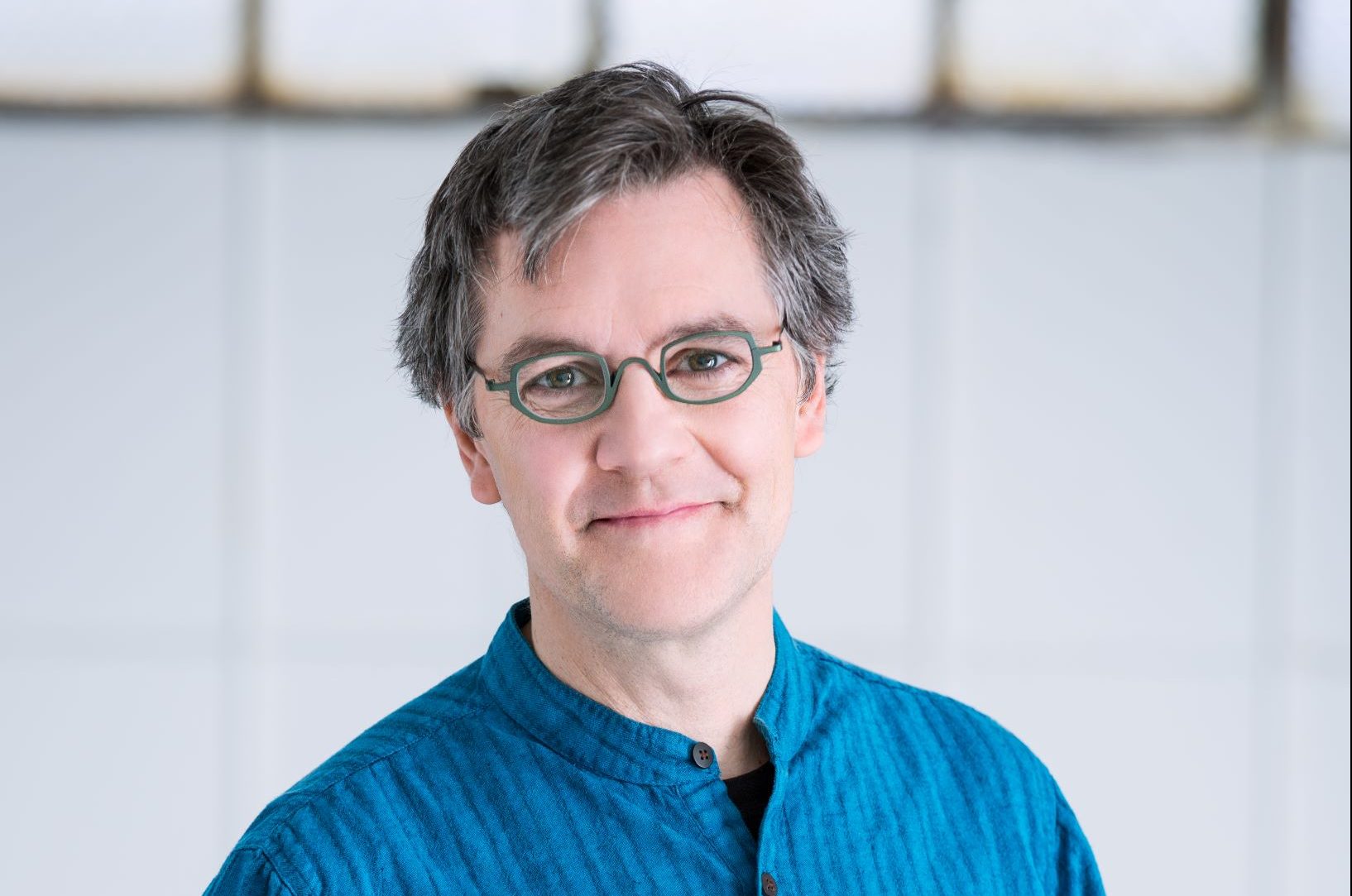
Francis Colpron, music director, recorder
Recorder and traverso player Francis Colpron is recognized as one of the most talented musicians of his generation. During the past three decades, the public, critics, and cultural authorities have acclaimed his abilities to innovate as an artist and performer. In 1991, he founded the ensemble Les Boréades de Montréal, of which he is the artistic director, and which puts on a very successful annual concert series in Montreal, performs in North America and Europe, and records on the ATMA Classique label.
Les Boréades has performed with world-renowned artists such as Hervé Niquet, director of the Concert Spirituel de Paris; Skip Sempé, harpsichordist and director of Capriccio Stravagante; violinists Manfred Kraemer and Adrian Butterfield; harpsichordist Alexander Weimann; conductor Eric Milnes; cornettist William Dongois; recorder player Stefano Bagliano; as well as with tenor Charles Daniels, and Canadian singers Matthew White, Karina Gauvin, and Laura Pudwell.
On stage, Francis Colpron, with Les Boréades, has explored the theatrical and musical worlds of the 17th and 18th centuries in shows such as Acis et Galatée (2015), La belle danse (2013), Tabarinades (2010), and Molière en Musique (2008). He has also acted in theatrical productions for young people such as Garde-Robe(2007) and La nuit de la Patate (2016). Noteworthy collaborators with Francis Colpron have included the directors Joël da Sylva and Jean-François Gagnon, and the actors Carl Béchard and Sophie Faucher.
Francis Colpron was associate flutist with Trinity Consort of Portland from 2000 to 2009. He has been a guest soloist with groups such as Apollo’s Fire of Cleveland, the Edmonton Symphony, the National Arts Centre Orchestra, Opera Atelier, Thirteen Strings, the Studio de musique ancienne de Montréal, Les Violons du Roy, the Nova Scotia Orchestra, and L’Harmonie des Saisons. As well as teaching at the Université de Montréal, he is frequently invited to share his experience as a teacher at well known summer music camps such as Amherst in the United States, CAMMAC in Quebec, and Boxwood in Nova Scotia. His discography consists of more than 40 recordings.
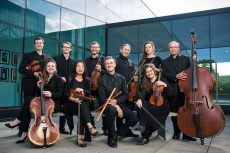
Les Boréades de Montréal
Founded by Francis Colpron in 1991, Les Boréades focuses on early music. The ensemble has chosen an interpretative approach in keeping with the spirit of the Baroque era, by adhering to the rules of performance practice of the past and playing on period instruments. Critics and audiences alike in Canada and abroad have been unanimous in hailing the group’s energy and spontaneity as well as its theatrical, expressive and elegant playing, indicative of a unique flair for Baroque aesthetics.
The group has received many grants from the Québec and Canada governments and has toured extensively in Canada and abroad, taking part in several renowned festivals. The musicians also performed at the Frick Collection of New-York, Concertgebouw in Amsterdam, Salle Gaveau in Paris, Vancouver Festival, Musikfest Bremen and at the Alter Musik Regensburg.
Les Boréades has performed with world-renowned artists such as Hervé Niquet, director of the Concert Spirituel de Paris; Skip Sempé, harpsichordist and director of Capriccio Stravagante; violinists Manfred Kraemer and Adrian Butterfield; harpsichordist Alexander Weimann; conductor Eric Milnes; cornettist William Dongois; recorder player Stefano Bagliano; as well as with tenor Charles Daniels, and Canadian singers Matthew White, Karina Gauvin. The ensemble Les Boréades owns a solid discography of 25 titles, on the Atma Classique label, which are distributed around the world.
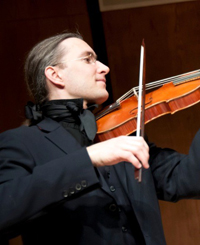
Olivier Brault, violin
Olivier Brault has enjoyed an international career for almost thirty years. Baroque violin teacher at McGill University, he is the director of Sonate 1704 (Québec) and of the ensemble Les Goûts Réunis (Luxembourg), principal violin with the Four Nations Ensemble (New York) and Les Boréades de Montréal and has been concertmaster of Apollo's Fire Baroque Orchestra (Cleveland) from 2011 to 2018. He can be heard on more than sixty recordings. In 2007, he completed a doctorate at the Université de Montréal on French music for violin and figured bass, an expertise that leads him to give lectures and masterclasses in prestigious institutions such as the Conservatoire royal de musique de Bruxelles and the Conservatoire de musique et de danse de Paris. In 2011, he was awarded the medal of the Assemblée Nationale du Québec. In 2016, an article from the Canadian Broadcasting Corporation placed him among the ten Canadian violinists that must be known.
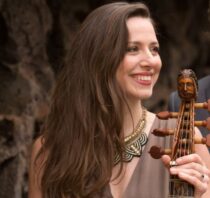
Mélisande Corriveau, violoncello & pardessus de viole
A specialist in early-music performance, multi-instrumentalist Mélisande Corriveau has been praised for her exceptional musical mastery. She is frequently a guest at major festivals in both North America and Europe, and is an active concert, touring, and recording artist. She regularly performs with a number of celebrated ensembles, and is a member of the ensembles Masques (France), Les Voix humaines, Sonate 1704, and Les Boréades de Montréal. As a soloist, she has been featured with Les Violons du Roy, National Art Center Orchestra, Montreal Symphony Orchestra,Tafelmusik Baroque Orchestra, and has toured with Jordi Savall and Ensemble Hespèrion XXI. Her discography comprises some 50 titles on various labels. Her discs with harpsichordist Eric Milnes - Pardessus de viole and Marin Marais : Badinages - have won numerous accolades including Opus Prizes for early-music CD of the year and classical disc of the year by ICI Radio- Canada (2016). Mélisande Corriveau and her partner Eric Milnes co-direct the two time Juno award-winning vocal and instrumental ensemble L’Harmonie des saisons, which they founded in 2010. In 2014, Ms. Corriveau completed, with honors, a doctorate in pardessus de viole performance at the Université de Montréal. She is recognized as one of the world’s few specialists on this instrument.
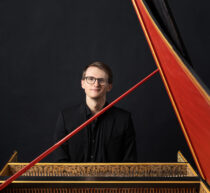
Mark Edwards, harpsichord & organ
First prize winner in the 2012 Musica Antiqua Bruges International Harpsichord Competition, Canadian harpsichordist and organist Mark Edwards is recognized for his captivating performances, bringing the listener “to new and unpredictable regions, using all of the resources of his instrument, […] of his virtuosity, and of his imagination” (La Libre Belgique). Since 2016, he is Assistant Professor of Harpsichord at Oberlin Conservatory.
He has given solo recitals at a number of prominent festival and concert series. He has had concerto performances with a number of award-winning ensembles, including Ensemble Caprice (Canada) and the Montreal Symphony Orchestra. He is also an active chamber musician.
His début solo CD, Orpheus Descending, was released in 2017 on the early-music.com label and was reviewed warmly. Passaggi (ATMA 2013), his CD with the Canadian recorder player Vincent Lauzer, was nominated for an ADISQ award.
In addition to his success in Bruges, Mark has distinguished himself as a prizewinner in a number of important competitions, including the 2012 Jurow International Harpsichord Competition, the 2011 Concours d’orgue de Québec, and the 2008 Rodland Organ Competition. He is the recipient of academic grants from the Social Sciences and Humanities Research Council of Canada and the German Academic Exchange Service (DAAD). He studied at the Eastman School of Music in Rochester, NY, where he earned his Bachelor of Music with highest distinction, and completed graduate degrees at McGill University and the Hochschule für Musik Freiburg. His former teachers include Robert Hill, William Porter, Hank Knox, and David Higgs. In 2021, he received a PhD from Leiden University after successfully defending his dissertation titled “Moving Early Music: Improvisation and the Work-Concept in Seventeenth-Century French Keyboard Performance.”

